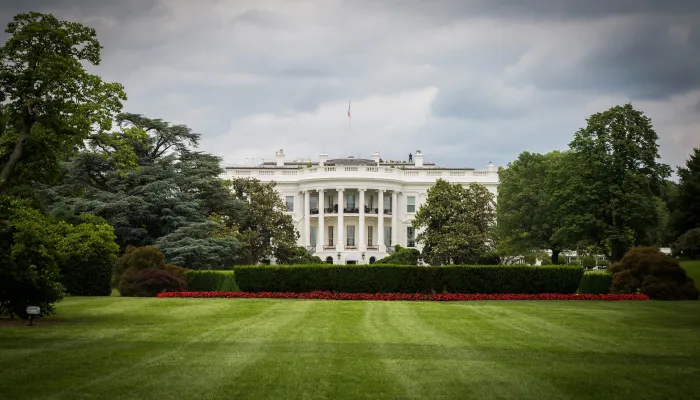Bipartisan Senate Support for Enhanced Presidential Rescission Authority
Senators John McCain (R-AZ) and Thomas Carper (D-DE) have joined efforts in yet another bipartisan pairing, this time to enable enhanced rescission authority for the President in order to restrain spending. Last week we saw senators reach across the aisle to propose reforms for biennial budgeting and discretionary spending caps. This latest proposal for an "expedited rescission" authority, which is a modified form of the line-item veto, has had support in the past. Carper, McCain, and former-Sen. Russ Feingold (D-WI) sponsored similar legislation in the 111th Congress with the support of President Obama, but it was never put to a vote. Now there appears to be new life and new support for this bill, The Reduce Unnecessary Spending Act.
Sens. Carper and McCain have long been champions of enhanced rescission authority. In a press release announcing the bill's introduction, Sen. Carper summed up the bill saying:
"This legislation would provide the president and Congress with an important tool to cut wasteful spending and ensure that tax-payer dollars are being spent wisely and effectively. This 'budget scalpel' will empower the president to make targeted cuts to trim the fat from spending bills and require Congress to hold an up or down vote on the president's proposed cuts, providing additional transparency and accountability to the appropriations process. While expedited rescission authority is not a silver bullet for eliminating the federal deficit, it can serve as a helpful addition to our toolbox as we work to eliminate wasteful spending that isn't in the best interest of our country. As a former governor who had similar discretion to cut unnecessary state spending, I've long advocated for the president to have this enhanced power. I look forward to working with Sen. McCain, our Congressional colleagues and the administration to quickly enact the Reduce Unnecessary Spending Act as part of our larger efforts to restore fiscal responsibility to the federal government."
The bill has 26 co-sponsors to date, from both sides of the aisle.
As Sen. Carper stated, the bill will allow the President to have greater fiscal controls by targeting wasteful spending and earmarks in legislation sent to his desk. In 1998, the Supreme Court found the pure line-item veto to be unconstitutional because it takes too much budgeting authority away from the Congress. This modified "expedited rescission" process would send the President's cuts as a rescissions package for the Senate and the House to vote on in an up-or-down vote within 45 days. Additionally, this expedited rescission authority would be scheduled to sunset at the end of 2015 so that Congress could review its effectiveness.
CRFB supports enhanced rescission as a useful tool to promote fiscal discipline. In 2008, CRFB President Maya MacGuineas testified before the House Budget Committee in support of enhanced rescission, among a number of budget reform ideas. And going all the way back to 2000, CRFB touted enhanced rescission as one of many possible budget reforms in the paper "Federal Budget Process: Recommendations for Reform". More recently, the Peterson-Pew Commission's Getting Back in the Black report recommended giving the President increased rescission powers to help enforce deficit reduction targets.
This new proposal for an expedited rescission tool would be a useful addition to our debt-fighting toolbox. It will not be a cure-all for our deficit woes and its effectiveness will undoubtedly be determined by the political will of the person wielding this tool. But in the right hands, the enhanced rescission authority can be an important asset to make controlling our deficits a little easier. We commend Senators Carper and McCain, and the many co-sponsors, for their commitment to fiscal responsibility and we hope to see this tool in President Obama's budget proposal next week as part of a comprehensive fiscal plan.


